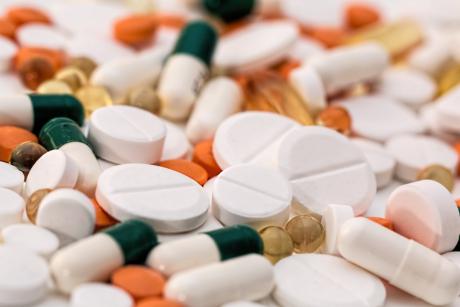Big Pharma is hurting the NHS [UK National Health Service] at its core – here’s what we need to do, if we’re bold enough.
Warnings of price hikes, supply problems and stockpiling under a no-deal Brexit has pushed medicines into the media spotlight of late – and no wonder. Yet the problems of accessing essential medicines go beyond whether or not a Brexit deal is reached. Many vital medicines are already not getting through.
Last week NHS England published its spending on medicines for the past year which amounted to a staggering £20 billion. That’s an 11 percent increase from the previous year and a 55 percent hike since 2010. For anyone following news about the NHS, that £20 billion figure may seem familiar as it’s the same amount the government announced it would be injecting into the NHS in the recent autumn budget. Yet even with this financial boost, the drugs bill is still rising faster than the NHS funding to pay for it.
One major reason for this is the price inflation of essential drugs. The extortionate prices being charged by big pharmaceutical companies are a financial drain on an already squeezed NHS budget. Yet at the same time, patients are being denied access to other effective drugs, even though they exist, because their price tag is just too high for the NHS.
Dunise is a Scottish breast cancer patient, working with campaign group Just Treatment. She has not been able to access breast cancer drug, pertuzumab (Perjeta) in Scotland because it is too expensive. Her story is not unique, but with the NHS rejecting or rationing drugs because of price, it is becoming more widespread. After years of negotiations with the government, drug manufacturer Vertex is still not offering an affordable price for its breakthrough Cystic Fibrosis drug leaving patients unable to access an effective life-changing treatment.
This financial burden is only going to increase as the first wave of new advanced cancer treatments called CAR-Ts – that reprogram the body’s own immune cells to attack malignant cells – are priced in the region of several hundred thousand pounds. The U.S. list price for Yescarta (CAR-T cell therapy for untreatable forms of blood cancer) is $373,000. The UK price is confidential but the therapy was rejected by NICE, the body which decides whether the NHS can afford a drug, in August.
High drug prices hit patients the hardest and hurt the NHS at its very core. Though we treasure the principle of public healthcare for all, free at the point of use, this is undermined by our system of privatised medicines. We have to question what is going wrong.
Big pharmaceutical companies defend high prices by claiming that they need to recoup their huge research and development (R&D) costs, but often there is little transparency around these costs. Many of the big pharmaceutical companies are spending while others are spending more on marketing than on R&D. Also much of the early stage, riskier research that leads to breakthroughs is publicly funded. Some estimates say that between one-third and two-thirds of all global spend on R&D comes from the public.
So what can be done about this? We need to move away from the current business model that prioritises short-term shareholder value and relies on financialised practices such as share buy-backs. It’s a corporate-driven model where decisions are made based on profit and financial returns not on public health need and patient access. This model does not treat health as a human right and is not delivering the health innovation that we need and even when it does, it’s at prices that governments can’t afford.
Instead, as we explored in a recent report with University College London, STOPAIDS and Just Treatment, we need bold reforms to re-orientate the whole model so that the public have greater democratic control over our pharmaceutical system and where the incentives are radically changed. Right now, the industry is incentivised to develop new drugs by high prices. This could be changed so that innovators are rewarded with upfront innovation inducement prizes rather than patent-based monopolies. The prizes would include stipulations that the technology would be freely licenced to enable different manufacturers to compete and bring prices down.
The public sector makes significant contributions to R&D but publicly-funded breakthroughs often get licensed to private companies, which then set high prices and extract excessive profits. Taxpayers pay twice, first for the research and then in high prices. In 2016,the NHS spent £1 billion on drugs in 2016 where public money had funded their research and development, and yesterday’s figures show this has risen to £1.3 billion. In order to ensure public returns from public investment, conditions should be attached to public funding. These conditions should stipulate that drugs based on publicly-funded research should be affordable and accessible.
Something that the UK government could do today would be to issue crown use licenses on drugs whose prohibitive pricing creates patient access problems. This allows other companies to produce such drugs and enables lower prices. The right to do this is enshrined in a WTO global agreement on intellectual property and so the UK government should use all tools available to push for patient access on vital medicines.
Extra money going into the NHS (itself subject to review if no Brexit deal is reached) will provide some much-needed breathing space to a cash-starved NHS, but not if the money is siphoned off to big drug companies through charging extortionate prices. Doing nothing is not an option. The financial cost to the NHS is unsustainable and the human cost of denying access to medicines is inexcusable. It shouldn’t take the shock of Brexit for politicians to act.
Heidi Chow is pharmaceuticals campaigner at Global Justice Now.










